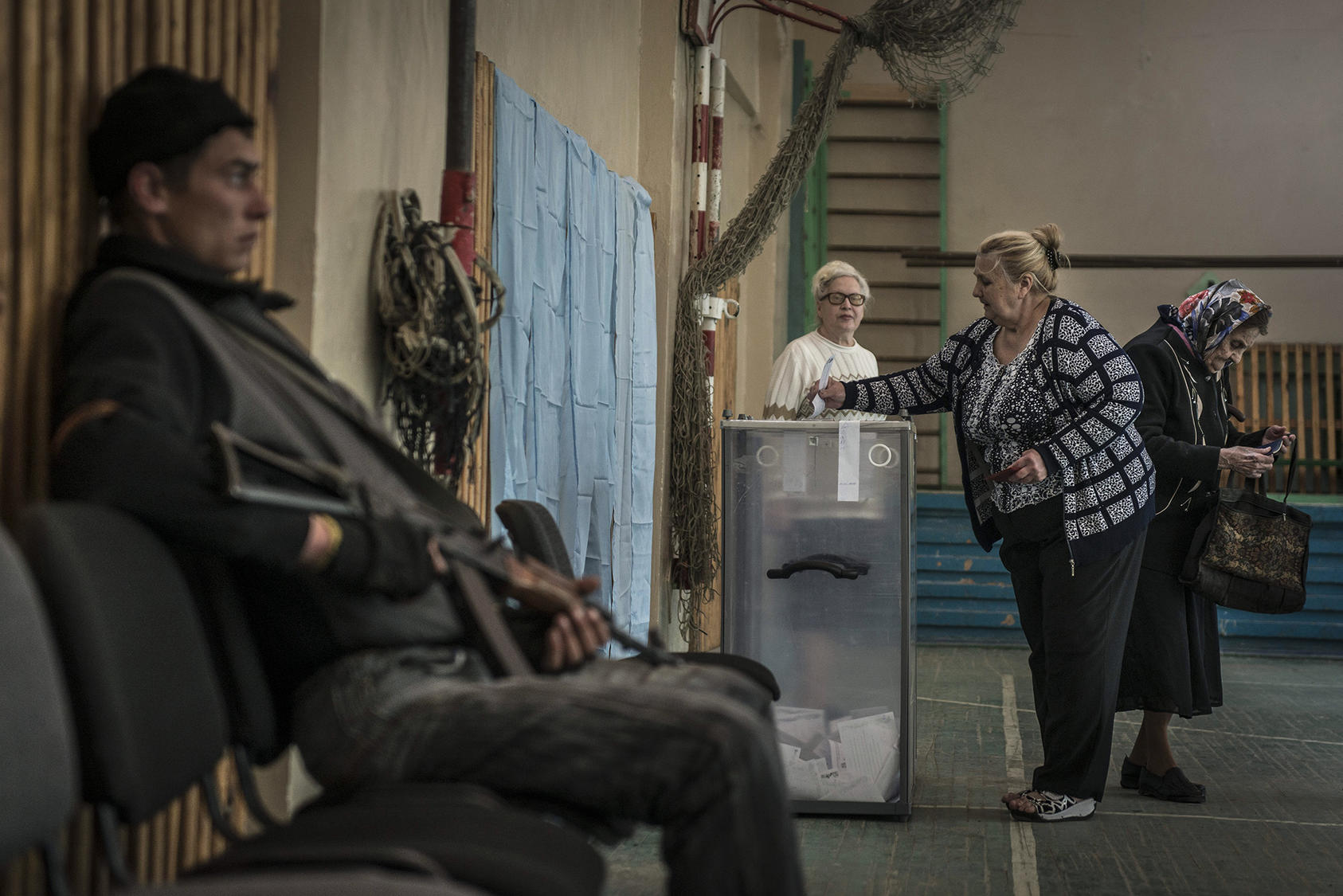On November 26, 2018, Ukrainian President Poroshenko enacted martial law—for 30 days—in response to Russian naval ships ramming Ukrainian vessels in the Azov Sea and seizing the strategic Kerch Strait. The decision led to concerns that voter rights and civil liberties would be constrained, just a few months before a critical election. Now that the period of increased military preparedness has officially ended, it is time to evaluate the impact martial law had on the upcoming presidential election, scheduled for March 31. USIP recently published an assessment of these elections, identifying conflict drivers, scenarios for violence and recommendations for election violence prevention.

After the incident in the Azov Sea, President Petro Poroshenko convened Ukraine’s Security and Defense Council, which recommended the government declare a state of martial law covering the entire country for two months. The Verkhovna Rada, Ukraine’s parliament, voted to impose a more limited version of 30 days, only covering 10 oblasts bordering Russia, sea borders and the unrecognized republic of Transnistria. The 30-day period began on November 26, 2018, allowing the election campaign to start as scheduled on December 31, a key demand of opposition factions. To avoid further uncertainty, the Rada concurrently adopted a decree confirming the presidential election date of March 31, 2019.
What did Martial Law Entail?
The approved measure increased the mandate of security forces to guarantee national security. A 2015 law, “On The Legal Regime of Martial Law,” details its use for increased security for critical infrastructure, state control over private property, and increased regulation of telecommunications. But not every possible measure of the law must be imposed.
In the context of the upcoming elections the most important implications were possible bans on holding presidential, parliamentary and local elections; the restriction of protests, marches and gatherings; and the banning of political activities deemed detrimental to state security. However, most political activities started in early 2019, and were not affected by martial law.
The most direct impact was the cancellation of local elections in amalgamated communities across the 10 oblasts where martial law was imposed. Martial law led to the cancellation of 47 local elections out of the 151 elections that were originally planned for December 23. The Central Election Commission (CEC) stated that these elections will be rescheduled after martial law ends. However, it is highly doubtful that they can still be organized before the presidential election. While some have accused the CEC of blocking the process, their hands seem tied by the legislative framework and political decision-making.
Political Motives
President Poroshenko claimed that martial law was necessary in response to Russian acts of aggression as it was amassing tanks at Ukraine’s border days after the sea clash. Moreover, Moscow announced it was deploying an additional S-400 surface-to-air missile system to Crimea, the peninsula it annexed from Ukraine in 2014. Others claim that the limited martial law was a measured response to nearly five years of war with Moscow.
Still some, including Vladyslav Sobolevskyy, a former commander of the controversial Azov National Militia, voiced the opinion of many Ukrainians by claiming that Poroshenko was creating a common enemy to boast his electoral prospects. Former prime minister and presidential hopeful Yulia Tymoshenko similarly denounced the move as a “destruction of human rights under the guise of martial law.”
A recent survey showed that most Ukrainians opposed the decision to introduce martial law. At the very least, recent events have shifted the election narrative away from anti-corruption to national security, while reminding Western allies of Ukraine’s precarious position.
Predicted Impacts
So far, the direct impact of martial law on the presidential elections has been limited. Campaigning was not interrupted, and long-term election observation and civic education was able to continue, even in the 10 affected oblasts.
Recent turmoil has further increased the importance of the upcoming presidential elections. Ensuring that these elections take place in a timely, credible and peaceful manner is crucial if Ukraine’s democratic institutions are to further strengthen and build local and international legitimacy.


